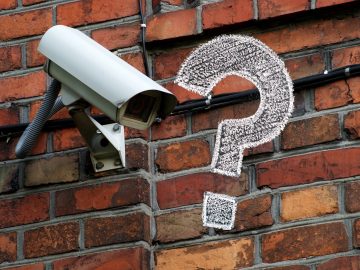Question: When I was in the States, I bought a radio alarm clock with a concealed surveillance camera. I brought it back home to Germany with me, but my neighbor says these types of product are banned here. Is that right, and if so, why?
Answer: Whether your radio alarm clock is illegal in Germany and other European countries can depend on a single detail. Certain surveillance cameras may actually be banned where you live. In Germany for example there are certain models concealed in and passing themselves off as smoke detectors, teddies, lights, or, in this case, radio alarm clocks, which transmit recorded images to the internet via a Wi-Fi connection. These violate section 90 of the German Telecommunications Act (TKG), which prohibits the integration of covert surveillance technology into everyday objects. This is because they allow images to be taken or recordings to be made secretly of people without their knowledge. So, if you’ve got a camera like this, it leaves you liable to prosecution.

Germany’s Federal Network Agency leaps into action
With more and more retailers in Germany flouting the ban, the Federal Network Agency has taken matters into its own hands. It recently removed retailers’ offerings and took action against buyers, asking them to destroy any such models they had bought and provide proof that they had done so either in the form of a letter of confirmation from a waste management facility or by providing photos showing that they had destroyed the spying device in question. Needless to say, buyers weren’t entitled to any refunds.

The law is confusing
On closer inspection, the law makes little sense. On the one hand, a baby monitor camera masquerading as a teddy for the bedroom is illegal, while a spy camera passing itself off as a lighter, USB stick, or pen is perfectly legal. According to the Federal Network Agency, the key difference is a single detail: In the case of cameras with a wireless connection, the perpetrator doesn’t need to return to the “crime scene” when recording audio or images; in the case of cameras that record to a memory card, they do. So, this means that a camera hidden in a smoke detector is fine as long as it records to a memory card. As soon as it features a wireless module, it needs to be destroyed. It’s all as clear as mud. To give another example, it doesn’t stand to reason why the law doesn’t cover outdoor cameras hidden in bushes, disguised in flower pots, or passing themselves off as rocks. Section 90 of the TKG confuses citizens more than it actually helps.
This post is also available in: German













